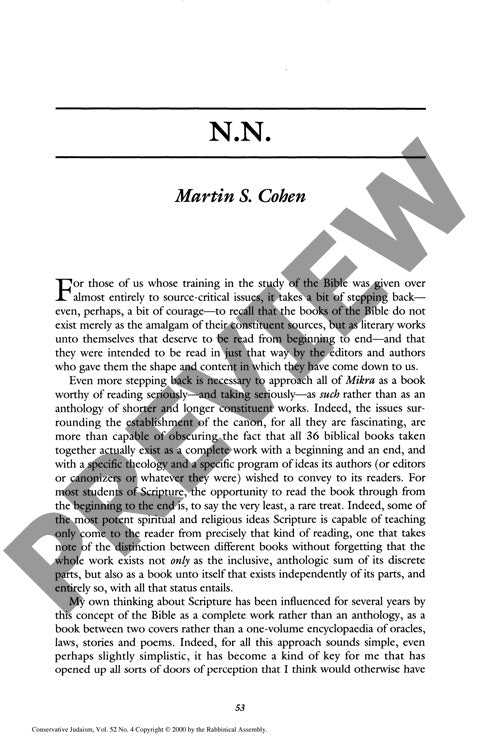Nn
Couldn't load pickup availability
Within the biblical narrative, the Babylonian king Nebuchadnezzar emerges as a figure of striking contradictions—appearing in Jeremiah as an unredeemable instrument of divine wrath, yet in Daniel as a ruler capable of profound spiritual transformation. Through close textual analysis of these books, a systematic variation emerges in the king's very name: "Nebuchadrezzar" (with 'R') in Jeremiah versus "Nebuchadnezzar" (with 'N') in Daniel. These orthographic differences reflect two fundamentally incompatible characterizations of the same historical figure. In Jeremiah, Nebuchadrezzar serves as a faceless embodiment of divine judgment—a wordless destroyer executing God's punishment against Israel. Conversely, Daniel presents Nebuchadnezzar as a complex human being whose four-chapter spiritual journey traces his evolution from pagan monarch to repentant believer acknowledging God's sovereignty. Viewing these biblical texts as a unified literary work rather than disparate sources reveals how Scripture deliberately employs these contrasting portraits to illustrate the transformative potential of divine relationship. This interpretation challenges traditional source-critical approaches, uncovering profound theological insights about human nature, divine grace, and the possibility of redemption that remain hidden when texts are examined only as isolated units.

More Information
-
Physical Description
-
Publication Information
Published 2000
ISBN
-
Publication Credits
Martin Cohen

